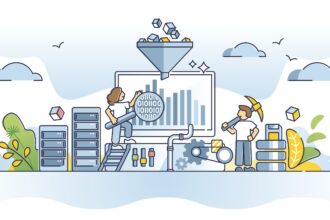Last year, when I was still at BusinessWeek, I checked out Zeo, the sleep-monitoring tool. I was thinking about doing a story just about sleep, but the Wall Street Journal did one. So I worked Zeo into a story about Gordon Bell and his attempt to log the data of his life. It’s pretty clear to me that we’re going to have more and more tools to monitor our behavior and body functions, and sleep is an important part of that.
In the first week using Zeo, I learned a lot about my sleep patterns. It was interesting. I usually fell asleep within 10 minutes, entered deep sleep early in the night, and then divided the rest of the sleep between REM and light sleep. One time I thought I had been awake for a couple of early morning hours, but later saw that I had been in REM for most of that time. I was probably dreaming that I was struggling to fall asleep.
Every night you get a ‘score’ on the quality of your sleep. It’s based on an algorithm that combines hours of sleep, REM and deep sleep…
Last year, when I was still at BusinessWeek, I checked out Zeo, the sleep-monitoring tool. I was thinking about doing a story just about sleep, but the Wall Street Journal did one. So I worked Zeo into a story about Gordon Bell and his attempt to log the data of his life. It’s pretty clear to me that we’re going to have more and more tools to monitor our behavior and body functions, and sleep is an important part of that.
In the first week using Zeo, I learned a lot about my sleep patterns. It was interesting. I usually fell asleep within 10 minutes, entered deep sleep early in the night, and then divided the rest of the sleep between REM and light sleep. One time I thought I had been awake for a couple of early morning hours, but later saw that I had been in REM for most of that time. I was probably dreaming that I was struggling to fall asleep.
Every night you get a ‘score’ on the quality of your sleep. It’s based on an algorithm that combines hours of sleep, REM and deep sleep. On my best nights, I broke into the 80s. My 21-year-old son tried it one night and broke 100. (You don’t need a machine to know that younger people sleep more deeply.)
The point, of course, is to improve your score. You upload your data to a Web site, and Zeo provides automated coaching. The problem for me, and the reason I stopped using the machine, is that my sleep turned out to be simple. As I see it, there are four variables that I can control: Alcohol, caffeine, bedtime, animals. In other words, if I minimize alcohol and caffeine (in the p.m.), shut the cats in the basement and go to bed before 11, I get a good score. Now that I know this, I can lose the electronic headband (which didn’t turn out to be a huge turn-on).
In this sense, the Zeo worked perfectly. The goal for these monitoring machines should be to provide us with feedback, so that we understand and perceive our patterns on our own.






